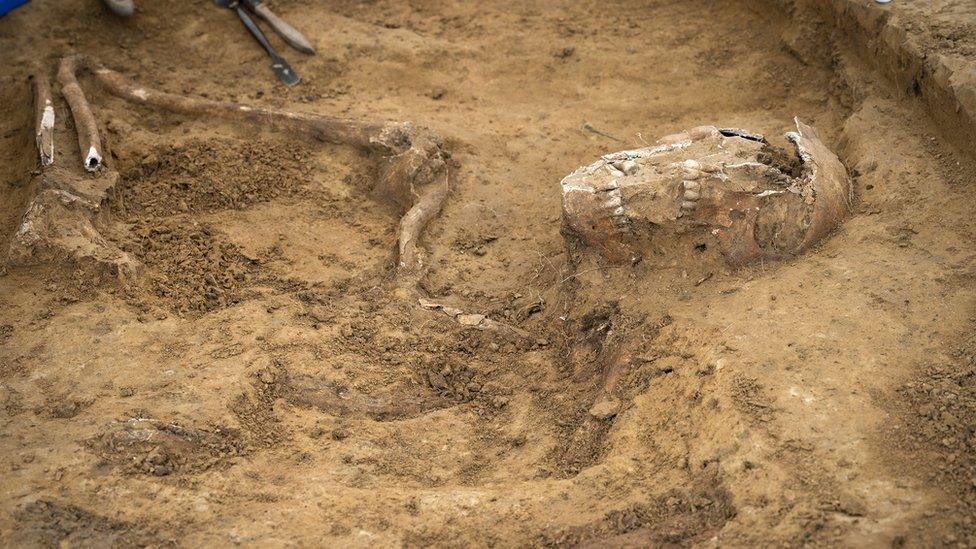Battle of Waterloo skeletons uncovered in Belgium
- Published

Excavations resumed this year for the first time since 2019
Skeletons of soldiers who died at the Battle of Waterloo in Belgium in 1815 have been unearthed by archaeologists.
Experts say the discoveries are "incredibly rare" on a Napoleonic battlefield and further excavation is under way to learn more.
Teams found remains of humans and horses in the dig, which resumed this year for the first time since 2019.
"We won't get any closer to the harsh reality of Waterloo than this," said one of the project's directors.
Prof Tony Pollard, director of the Centre for Battlefield Archaeology at the University of Glasgow and an archaeological director at the Waterloo Uncovered charity, has been closely involved in the excavations.
"I've been a battlefield archaeologist for 20 years and have never seen anything like it," he added.
Skeletons from the Napoleonic wars are not often found
The Battle of Waterloo, fought on 18 June 1815, marked the end of the Napoleonic Wars.
A French army under the command of Napoleon was defeated by British-led forces, led by the Duke of Wellington, allied with a Prussian army led by Field Marshal von Bl眉cher.
Historians describe the battle as an epic turning point in European history which put an end to Napoleon's ambition to rule much of Europe.
It also reshaped Britain's relationship with the continent.
Among the finds in the latest dig, the remains of three amputated limbs were uncovered at Mont-Saint-Jean farm, which was the site of the Duke of Wellington's main field hospital during the battle.
Tens of thousands died in the fighting, but few remains have been found. According to contemporary accounts, large numbers of bones were collected, ground down and used as fertiliser on farms.
The team will continue its excavations until 15 July and hopes to make more discoveries before then.
Man's Battle of Waterloo model dream
Related topics
- Published9 June 2018
- Published10 June 2015